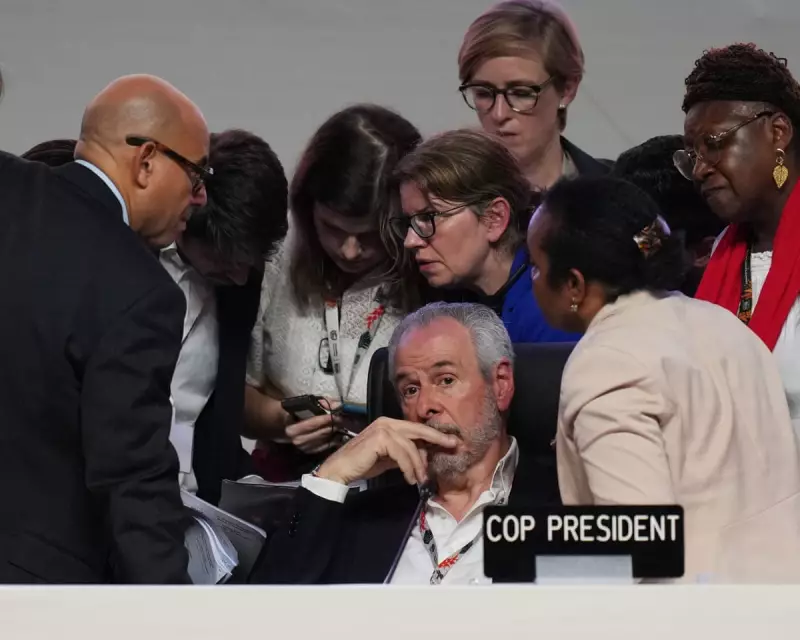
The latest round of United Nations climate negotiations, Cop30, concluded in the Brazilian city of Belém without the major breakthrough many had hoped for. The final agreement failed to secure a deal on phasing out fossil fuels and delayed critical decisions on climate finance, leaving a fragile consensus that merely prevented the collapse of the multilateral process.
A Fragile Consensus and Missing Ambition
While the talks held together, the outcome was widely seen as lacking the necessary ambition to address the escalating climate crisis. The final text omitted a roadmap to halt and reverse deforestation, known as the "mutirão" decision, and did not deliver a meaningful agreement on the transition away from coal, oil, and gas.
The chair of the Least Developed Countries (LDC) group, Evans Njewa, stated bluntly that the world's most vulnerable nations came to Belém seeking protection from climate impacts but left with their key demands postponed. This sentiment underscores the growing frustration among developing countries, which are bearing the brunt of a crisis they did little to create.
The Great Climate Finance Divide
The core conflict at Cop30 revolved around climate finance. Developing countries from the global south presented a united front on a fundamental principle: they must be equipped with sufficient funds to survive the climate emergency. This includes cash to build flood defences, create resilient agricultural systems, protect coastlines, and rebuild after disasters strike.
They also insist on front-loaded finance to enable a transition to clean, green economic growth. However, a recent UN adaptation report highlights a vast and growing financial chasm. It suggests developing countries require more than $310 billion per year by 2035 for adaptation alone. In a stark contrast, they received only $26 billion in 2023, down from $28 billion the year before.
African negotiators are particularly insistent that adaptation finance must come from state sources, preferably as grants. They argue that relying on the private sector is delusional, as it currently constitutes only 5% of adaptation cash, most of which is philanthropic. Private capital will not build sea walls, restore mangroves, or protect subsistence farmers.
Geopolitical Tensions and Blockades
Securing this finance from the global north has proven to be a hard sell. Political landscapes in many wealthy nations are fraught, with right-wing populists frequently railing against climate spending and foreign aid. Furthermore, a broader geopolitical shift towards spiky confrontations has created an environment where the clean industrialisation of the global south is viewed not as a priority, but as an economic threat.
The absence of the United States was particularly notable. For the first time since 1995, America sent no official delegation to the annual climate summit. Analysts suggest this may not have been entirely unwelcome, given that the US, which owes the largest climate debt in the world, has blocked meaningful finance deals for years.
Despite some divisions within the global south—such as China's resistance to moves on rare earth minerals and petrostates opposing Colombia's call for a fossil fuel phase-out—the overarching demand for climate justice and financial support remains coherent.
The disappointment of Cop30 now turns attention to future summits in Turkey and Ethiopia. The urgency is undeniable; without a dramatic course-correction, the UN warns that the poorest countries will be left dangerously exposed to intensifying heatwaves, wildfires, and floods. The talks in Belém underscored a simple reality: only by moving beyond symbolism and self-interest can the world secure a liveable future for all.





